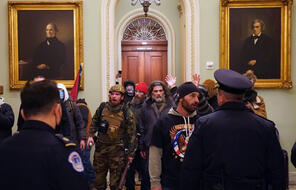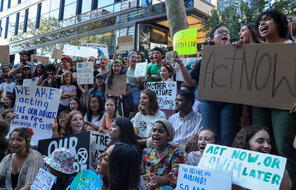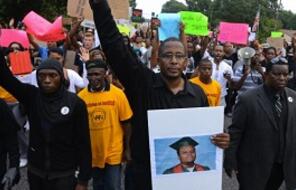Resource Library
Find compelling classroom resources, learn new teaching methods, meet standards, and make a difference in the lives of your students.
We are grateful to The Hammer Family Foundation for supporting the development of our on-demand learning and teaching resources.

Introducing Our US History Curriculum Collection
Draw from this flexible curriculum collection as you plan any middle or high school US history course. Featuring units, C3-style inquiries, and case studies, the collection will help you explore themes of democracy and freedom with your students throughout the year.
3286 Results
Adding to Evidence Logs, 1 of 4
Students incorporate new evidence from the history of the Weimar era into the position they are developing.

Adding to Evidence Logs, 2 of 4
Students consider how what they've learned about the rise of the Nazi Party influences their thinking about the essay prompt and practice making inferences.

Adding to Evidence Logs, 3 of 4
Students review the documents and videos from previous lessons and consider what information supports, expands, or challenges their thinking about the essay.

Watching Who Will Write Our History
Students view the film, analyze a primary source from the Oyneg Shabes archive, and consider why it matters who tells the stories of the Jews in the Warsaw Ghetto.

Adding to Evidence Logs, 4 of 4
Students reflect on, gather evidence for, and discuss the unit writing prompt in its entirety.

Refining the Thesis and Finalizing Evidence Logs
Students reflect on the unit as a whole and begin to write a strong thesis statement for their essay.

What Happened During the Insurrection at the US Capitol and Why?
This mini-lesson guides students to use an iceberg diagram to synthesize the events of January 6, 2021, and outline the complex array of causes at work.

What Is Our Obligation To Asylum Seekers?
Help students understand how the United States’ complex asylum process works. Invite them to consider the question, who has an obligation to asylum seekers?

Where Do We Get Our News and Why Does It Matter?
Explore media bias using recent news coverage of controversial events and help students think about what healthy news habits they want to adopt.

Youth Taking Charge! Placing Student Activism in Historical Context
Use this mini-lesson to explore the rich history of youth activism from the 1960s to present day.

Young People Respond to Climate Change
Explore with your students why young people are calling for action against climate change and some of the strategies they can use to make a difference on this issue.



